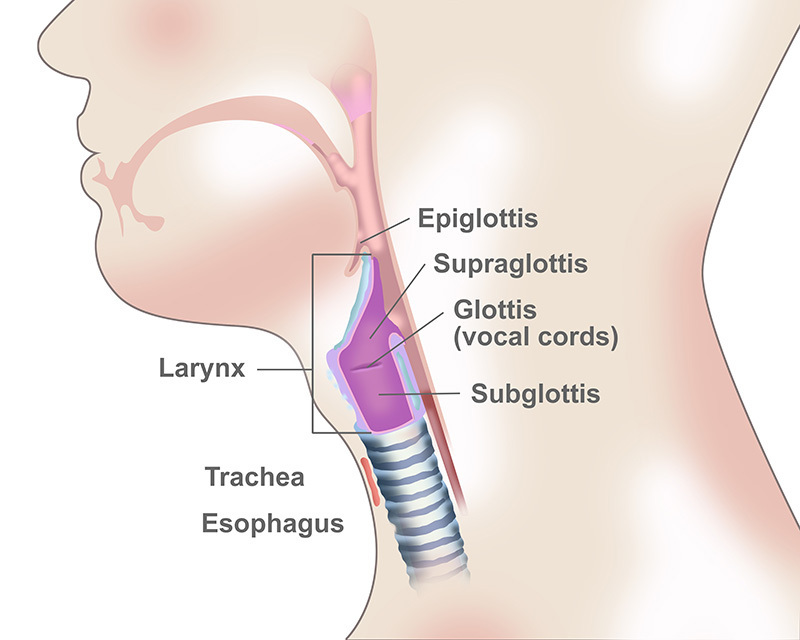Important Traffic Notice: Due to road construction on Southwest Highway directly in front of our Chicago Ridge location, traffic may be heavier than usual. Please plan ahead and allow extra time to arrive safely. Thank you for your patience and understanding!
Laryngeal cancer is a type of head and neck cancer that affects your larynx, or voice box. When not treated quickly, cancer of the larynx can damage your voice. It may also spread to other parts of the body.
There are three main parts of the larynx:
- Supraglottis: the upper part of the larynx above the vocal cords, including the epiglottis— the flap that covers the trachea during swallowing so that food does not enter the lungs
- Glottis: the middle part of the larynx where the vocal cords are located
- Subglottis: the lower part of the larynx between the vocal cords and the trachea (windpipe)
Most laryngeal cancers form in squamous cells, the thin, flat cells lining the inside of the larynx.

Risk Factors of Laryngeal Cancer
Anything that increases your risk of getting a disease is called a risk factor. Risk factors of laryngeal cancer may include:
- Smoking and/or chewing tobacco
- Moderate or heavy alcohol use. This is considered to be more than one drink a day.
- Poor nutrition
- Human papillomavirus (HPV) exposure
- Certain genetic mutations
- Workplace exposures to certain fumes and chemicals
- Gender: Men are more likely to develop laryngeal cancer than women.
- Age: Cancer of the larynx is more common among those at age 65 and older.
- Race: African Americans and Caucasians are more commonly diagnosed.
- Gastroesophageal reflux disease (GERD)
Keep in mind that having a risk factor does not mean that you will get cancer of the larynx. Likewise, not having risk factors doesn't mean that you will not get the disease. Talk with your doctor if you think you may be at risk.
Signs and Symptoms of Laryngeal Cancer
These and other signs and symptoms may be caused by cancer of the larynx or other conditions. Check with your doctor if you have any of the following:
- A sore throat or a cough that does not go away
- Trouble or pain when swallowing
- Ear pain
- A lump in the neck or throat
- A change or hoarseness in the voice
Again, these symptoms could be related to something other than laryngeal cancer. However, should you experience any of these for more than three weeks, it is a good idea to be checked by a doctor. If it is cancer, early detection can give you better treatment results.
Learn about how laryngeal cancer is detected.

Laryngeal Cancer Treatment in the South Chicago Suburbs
If you have received a cancer diagnosis and are seeking treatment for laryngeal cancer in the South Chicago suburbs, our cancer centers offer the latest laryngeal cancer treatment options. We also provide second opinions. Our head and neck cancer doctors help treat patients in Chicago Ridge, Mokena, Hazel Crest, Palos Heights, and Oak Lawn.